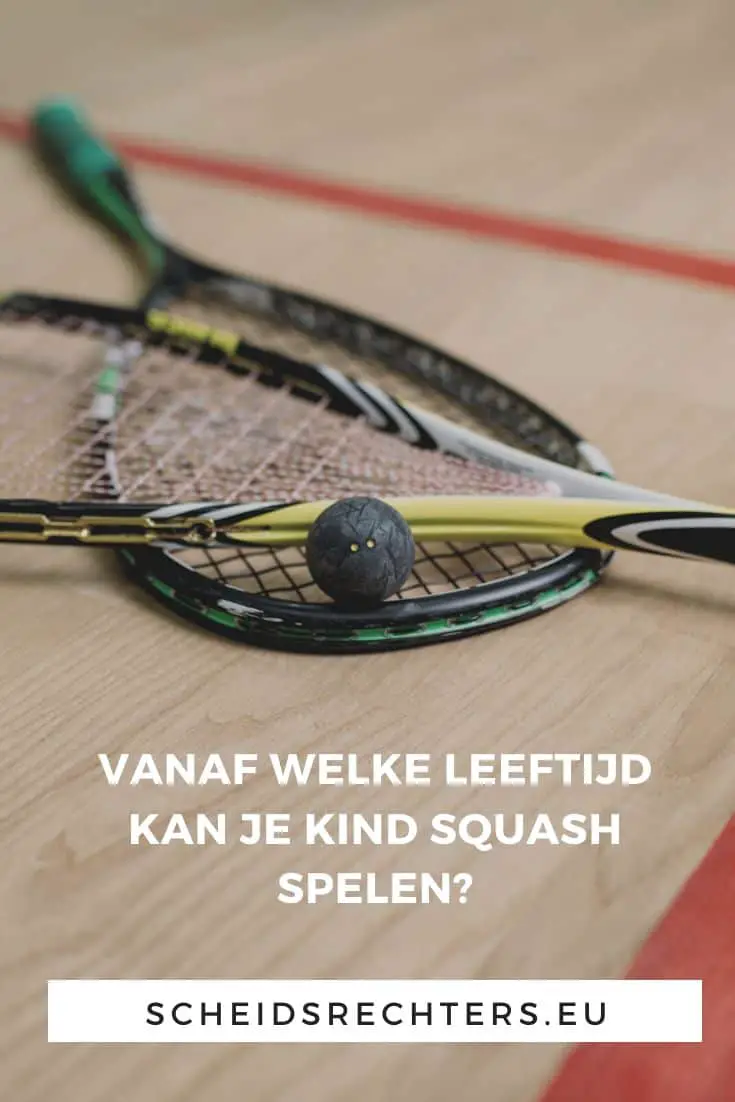I enjoy writing these articles for my readers, you guys. I don't accept payment for writing reviews, my opinion on products is my own, but if you find my recommendations helpful and you end up buying something through one of the links I may be able to receive a commission on that. More information
Squash is a great way to boost children's health and fitness. Squash is fast and fun and was recently named the healthiest sport in the world.
Squash was recently rated as the number one healthiest sport in the world by the highly regarded Forbes Magazine rating sports on their level of fitness, speed, flexibility, risk of injury and strength.
Those attributes combined with a sport that can be played anytime (night or day), in any weather makes the sport popular, easy to find and a great way to have fun while getting fit.

What we discuss in this comprehensive post:
At what age can your child start playing squash?
When you can lift a racket, it is actually already the time to start.
In most cases, the youngest starting age for squash is 5 years old, but some children start earlier, especially if they come from enthusiastic squash families!
Most clubs have developed a Junior Skills program designed to help players develop their racket and ball skills while paying attention to physical skills.
Lees meer: how does the scoring work again in squash and how do you score a point?
What equipment does a child need for Squash?
The list of equipment you need to play Squash is quite short:
- squash racket: Can be found at most reputable sporting goods stores or your local Squash Club pro shop.
- Non-Marking Squash Shoes: shoes that don't mark the wooden floors - found in all sporting goods stores.
- Shorts / Skirt / Shirt: Available at all sports and clothing stores.
- Goggles: If you're serious about playing in tournaments and interclubs, goggles are mandatory: they ensure your safety on the pitch and are available at most sports or squash stores.
- Optional items: gym bag, water bottle – check sports stores (or your closets at home) for these items.
Note: Club subscription fees vary from club to club, and the cost of equipment such as rackets may vary depending on the quality of the gear you purchase.
Also read: what do the dots on a squash ball mean?
How much time does Squash take to learn?
For most kids, they have one practice and one game a week. Games and practice can be played at any time that suits your family (one of the beauties of the sport).
You can be on the pitch for about an hour each time (showering and changing etc). The time you put in will probably be determined by the amount of time you have available and how eager you are to move forward!
This is because the sport is easily accessible and relies only on yourself (and maybe the other player) so the times can be adjusted to your needs.
Every club has a Club night (usually Thursday) where everyone can play. Most clubs also have a Juniors evening/day, usually on Friday evenings or Saturday mornings.
Each trainer also has their own way of Squash to be taught to pupils.
Tournaments are usually played on weekends – while Interclub is played during the week, after school.
The squash season is year round, but most tournaments, interclubs and events take place between April and September each year.
It is also useful to know that although squash is an individual sport on the field, it is very social within every club and region.
Where can a child play squash
Novice players can join a local squash club or, in many cases, experience the sport for the first time through their school.
High schools often offer an introduction to squash as part of their physical education.
Clubs and regions also host weekly junior programs for young players throughout the year. They receive coaching support to develop their playing and racket skills.
They also enjoy a fun environment where they can play against young players of their own age and skills.
Let them play and practice, and maybe you have a child talent like Anahat Singh to grab.
Also read: squash vs tennis, what are the differences and benefits?

